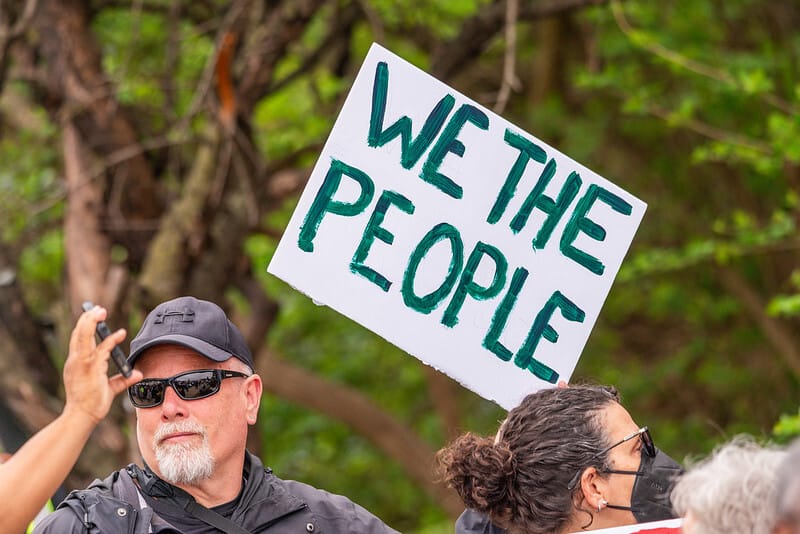
Add [email protected] to your address book so you don’t miss any newsletter issues!
The Spanish word for “to hope” is the same as the Spanish word for “to wait.” Coincidence? Maybe not!
Morning Tinto Episode 10: Being relational in resistance
Recorded today, my friend Heather Luna of keduzi and I reflect on what hope means in the context of privilege, and the importance of language and community. We discuss the “Hands Off” protests that occurred around the United States of America on Saturday, 5 April 2025, building on prior discussions about what makes a resistance action more individualistic or more relational. Heather and I also touch on doomerism and what possibilities can open up when we move from a mindset of “it’s all over” to “we are changing it.”
Take a listen, subscribe, and hit “REPLY” in your email app to let us know what you think!
Previous Morning Tinto recordings
Episode 1: The Trump Administration and DEI (23 minutes and 59 seconds)
Episode 2: Do not obey in advance. (21 minutes and 16 seconds)
Episode 3: An illiberal intervention (23 minutes and 7 seconds)
Episode 4: Who Are “We, the People”? (19 minutes and 22 seconds)
Episode 5: Off the spectrum? (32 minutes and 1 second)
Episode 6: The mask is off (28 minutes and 58 seconds)
Episode 7: Meeting each other’s needs (33 minutes and 18 seconds)
Episode 8: Survival and community (27 minutes and 6 seconds)
Episode 9: Being relational in resistance (31 minutes and 52 seconds)
Where to find the perspectives you’ve been missing
FIRST: Subscribe to the Morning Tinto podcast, where my friend Heather Luna and I use the lenses of oppression and resistance to talk about events that happen right before recording.
SECOND: Subscribe to our professional offers-and-needs networking events announcement list. Heather and I regularly host FREE online events where professionals can offer help (free or paid) and ask other professionals to meet their needs.
THIRD: Follow these awesome folks on LinkedIn:
Heather Luna of keduzi: workshopping pro-connectedness and anti-oppression as a way of life
Lavinia Muth: deconstructing the (un)sustainable fashion industry
Dr. Vidhya Shankar, Ph.D: decentering whiteness in evaluation of non-governmental organization projects
FOURTH: Forward this issue to people you know who are doing decolonial and anti-oppression work.
Got something to say to me?
Hit the “reply” button and give me a piece of your mind.
Steinberg, H. (2025, April 9). Untitled photo from album “Hands-Off Rally Washington DC April 5th, 2025.” Flickr. Last accessed 9 April 2025 from LINK. License: Creative Commons CC BY-SA 2.0, Attribution-ShareAlike 2.0 Generic. No modifications made.
Did someone send you this issue? Subscribe now to receive future newsletters like this.
Know someone who needs to see this issue? Hit the “Forward” button in your email app and send this to them.
My position
My name is Chris Musei-Sequeira, and I use he/him pronouns. My mother was born in Trinidad and Tobago as a descendant of African slaves brought to the islands during the time of European colonization. She came to the United States of America (USA) at the age of 10. My father is Goan and was born in India, in Mumbai, and raised Catholic and English-speaking. He came to the USA for his graduate studies, where he met my mother.
My sister and I were born in the USA and lived a middle-class life in the suburbs of multiple American cities. I studied aeronautical engineering and technology policy in university, then worked at the Federal Aviation Administration and as an aviation consultant. I've lived in cities up and down the USA East Coast since the age of 18; I now reside in Queens, New York with my wife.
I thank Heather Luna and Lavinia Muth for showing me the importance of publicly expressing our positions. Because of our positions, all of us are very familiar with some aspects of the world while having no idea of other aspects. Positionality expresses how our individual positions affect our relationships with other people and with the world as a whole.

